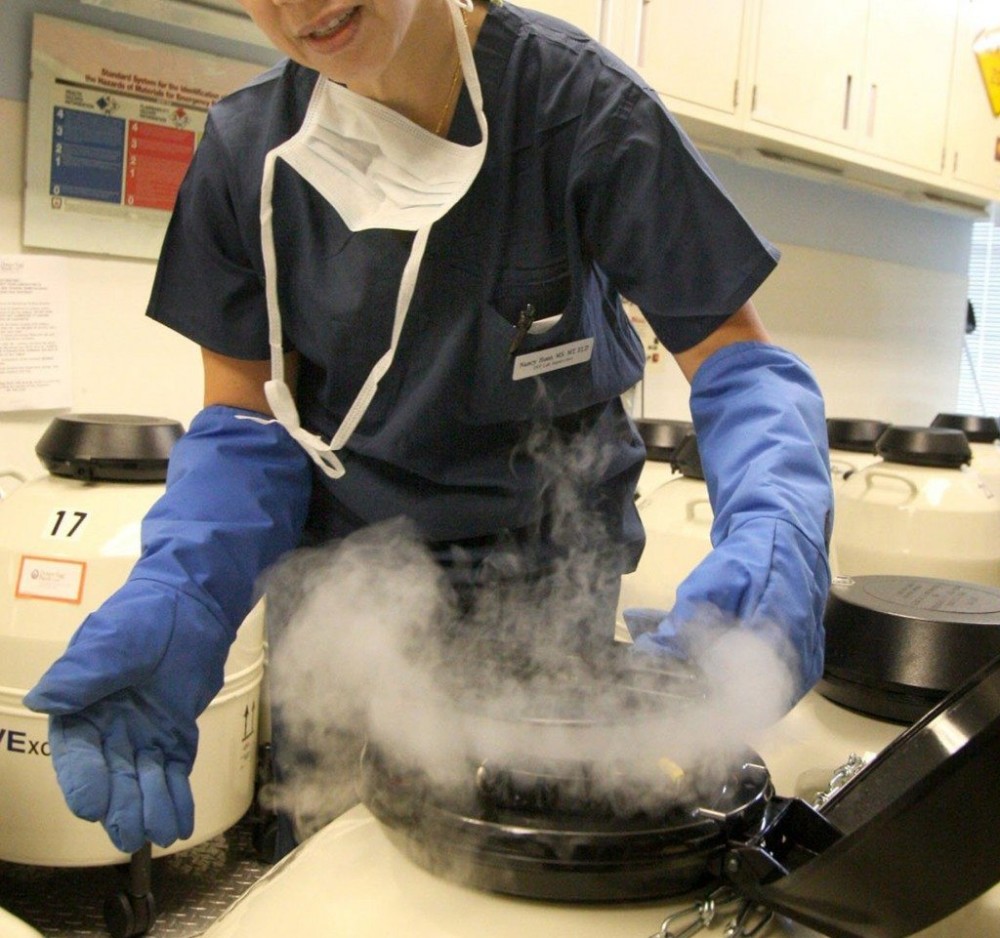By Angie Leventis Lourgos
Chicago Tribune.
CHICAGO
A Cook County judge on Friday awarded custody of frozen embryos to a 42-year-old Chicago woman over the objections of her ex-boyfriend who said it violates his right to not procreate.
In 2009, Karla Dunston, a doctor who lives in the city, began dating Jacob Szafranski, a 32-year-old firefighter, paramedic and nurse from nearby Elgin, Ill.
A few months into their relationship Dunston was diagnosed with lymphoma and had to undergo chemotherapy that would ultimately destroy her fertility.
She testified that she longed to have a biological child and asked Szafranski to provide his sperm so that embryos could be frozen prior to her treatment, and he did so, despite neither of them thinking the relationship had long-term prospects.
A co-parent agreement giving Dunston control of the embryos was never signed, though.
The couple broke up in May 2010. Szafranski said he changed his mind about being a father after friends and a girlfriend reacted negatively, according to court documents.
Judge Sophia H. Hall said Friday in a written ruling that oral agreements between Szafranski and Dunston concerning use of the embryos stand and added that Dunston’s desire to have a child outweighs Szafranski’s desire to not procreate.
“Karla’s desire to have a biological child in the face of the impossibility of having one without using the embryos outweighs Jacob’s privacy concerns, which are now moot,” the judge said in the ruling, “and his speculative concern that he might not find love with a woman because he unhesitatingly agreed to help give Karla her last opportunity to fulfill her wish to have a biological child.”
Dunston’s attorney, Abram Moore, applauded the ruling.
“Using these pre-embyros is important to our client, but it is equally important to her to set a precedent in Illinois which helps other women cancer survivors who find themselves in this heart-wrenching situation,” he said in an email.
Szafranski’s attorney, Brian Schroeder, said they plan to appeal the decision.
“We’re obviously very unhappy,” he said.
Schroeder said lawyers for both parties have agreed that the embryos should not be implanted in Dunston until the appeal is completed.
Through an attorney, Dunston previously has said she was not seeking any support, financial or otherwise, from Szafranski.
In 1985, 260 babies were born through assisted reproductive technology; in 2010, the number topped 61,000, according to the American Society for Reproductive Medicine.
Yet only a few state higher courts have addressed, with mixed results, what to do with frozen embryos once a couple has separated. Legal experts said they would be watching to see how Illinois handles the complex issue.
A Cook County trial court had previously ruled in favor of Dunston but Szafranski appealed, and the higher court sent the case back with a new framework: The dispute should be decided based on contracts and agreements between the two parties rather than just who has more compelling interest in the fate of the embryos.
The case went before the Illinois State Supreme Court, which decided not to hear it in September, sending the issue back to the lower court.














































































































































































































































































































































































